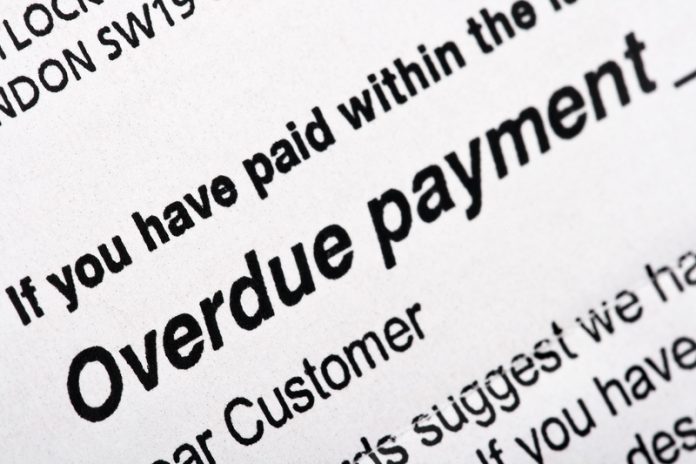The efforts of Cabinet Office Minister Oliver Dowden concerning new measures designed to address the issue of late payments in government contracts and to “level the playing field” for small firms looking to bid for work are discussed here by Open Access Government
The UK government has announced new measures designed to tackle late payments and create a more level playing field for smaller firms bidding to win contracts.
Poor payment practices can cost small businesses dearly, causing cashflow problems, building up debt and hindering growth – and can even result in otherwise viable companies going under.
The issue was put in the spotlight earlier this year when construction giant Carillion, a major government contractor, collapsed into administration, leaving many subcontractors high and dry.
Despite being a signatory of the government’s Prompt Payment Code, a report by two committees of MPs found the company was a “notorious” late payer that forced standard payment terms of 120 days on its suppliers.
Publishing the findings in May, Frank Field MP, Chair of the Work & Pensions Select Committee, says: “Carillion displayed utter contempt for its suppliers, many of them the small businesses that are the lifeblood of the UK’s economy.”
Rachel Reeves MP, Chair of the Business, Energy & Industrial Strategy Committee, adds: “The collapse of Carillion left small businesses and sub-contractors out-of-pocket, with many left unpaid for months and facing ruin.”
Carillion’s poor payment practices may be an extreme case, but the problem is by no means an isolated issue. Figures from the Federation of Small Businesses (FSB) show small firms are owed an average of £6,142, mostly from larger organisations not paying them for goods and services on time.
According to its research, 37% of small firms have run into cashflow problems because of late payments, while almost one in three has had to turn to an overdraft and 20% have seen a slowdown in profit growth.
The FSB estimates that if all payments were made on time then 50,000 more businesses would stay open and the wider UK economy would receive a £2.5 billion boost.
According to the most recent figures from 2015-16, the government spends £5.6 billion directly with small businesses. When subcontracts for small businesses from larger suppliers are taken into account, total spending hits £12.2 billion.
In April this year, Cabinet Office Minister Oliver Dowden announced a new package of measures designed to address the issue of late payments in government contracts and “level the playing field” for small firms looking to bid for work.
Under the proposals, large suppliers could be excluded from major government procurement opportunities if they cannot demonstrate fair and effective payment practices for subcontractors. In addition, subcontractors would be given greater access to buying authorities to report poor payment performance.
Furthermore, suppliers would have to advertise subcontracting opportunities with the Contracts Finder website and provide the government with data showing how businesses within their supply chains, including small firms, benefit from supplying to central government.
Prime Minister Theresa May has also written to Cabinet members asking them to nominate a minister to act as a “Small Business Champion” in each department to ensure SMEs are given a fair opportunity.
The plans were discussed at a roundtable event in March hosted by the Cabinet Office and attended by the FSB, the Confederation of British Industry and bodies representing social enterprises, entrepreneurs and chambers of commerce. In all, these organisations represent an estimated two million-plus small businesses.
Announcing the package of proposals, Dowden explains: “We have set a challenging aspiration that 33% of procurement spend should be with small businesses by 2022 – and are doing more than ever to break down barriers for small firms.
“Small businesses are the backbone of the UK economy and play a key role in helping us to build a strong, viable private sector that delivers value for taxpayers and jobs for millions all over the UK.”
The FSB welcomed the government’s plan to clamp down on poor payment practices in its own supply chains – but called for more to be done.
“Each year, the UK public sector spends over £200 billion on goods and services from third parties. As such a large and prominent customer in the economy, the government has a pivotal role to play in demonstrating what it is to be a good client,” says Mike Cherry, the federation’s national chairman.
“Companies who pay late should not be rewarded with public sector contracts. We need a robust public procurement process that holds larger companies to account for their payment practices.
“Episodes like the Carillion collapse bring into stark relief the need for stronger action that excludes businesses [that] cannot demonstrate a fair and responsible approach to payments from bidding for these contracts.”
The FSB is calling for further measures to build on the package announced by the government, including requiring all large companies to appoint a non-executive director with specific responsibility to report to the board on behalf of suppliers, including overseeing the statutory duty to report on payment practices.
Coupled with this, it wants to see the use of Project Bank Accounts to become the default option for all appropriate public sector contracts, not just those in the construction sector.
Project Bank Accounts are ringfenced accounts that act solely as a payment channel to ensure contractors, key subcontractors and suppliers are paid on contractually agreed dates. Employers are required to maintain adequate funds in the account to cover work in progress and other project commitments.
“Project Bank Accounts would help stop the unfair and irresponsible payment practices deployed by too many big businesses and ensure that small suppliers are paid promptly once a job is done,” says Cherry.
“This is not only good for small businesses but the whole of the UK economy.”
According to the FSB, there were a record 5.7 million private sector businesses in the UK at the start of 2017.
Small businesses accounted for 99.3% of all private sector companies and 99.9% were small or medium-sized. Total employment among SMEs was 16.1 million – 60% of all private sector employment in the UK – and combined turnover topped £1.9 trillion, 51% of the private sector total.
Open Access Government











